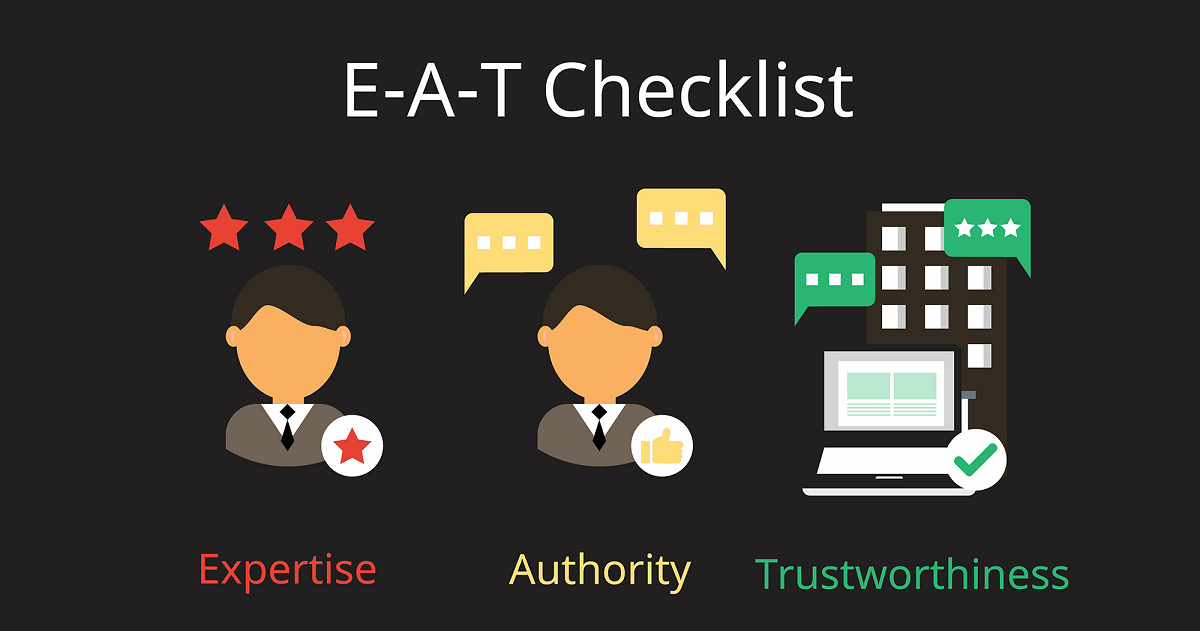BLOG
Mastering Local Keyword Optimization

In the ever-evolving landscape of online marketing, the importance of local visibility cannot be overstated, especially for businesses targeting a specific geographic audience. Mastering Local Keyword Optimization is not just a strategy; it's a necessity in the digital age where consumers rely on search engines to find local products and services. Whether you operate a small brick-and-mortar store or a regional service business, understanding and implementing effective local SEO strategies can significantly impact your online presence and, consequently, your bottom line.
Local Keyword Optimization involves tailoring your digital content to attract and engage local customers actively searching for products or services in their vicinity. This comprehensive guide aims to demystify the intricacies of local SEO, providing actionable insights into the art and science of dominating local search results. We will delve into the fundamentals of local keywords, explore advanced on-page and off-page optimization techniques, and uncover the critical role of Google My Business in local search success.
As we embark on this journey, businesses of all sizes will gain valuable insights into the world of local SEO, ensuring that their online presence aligns seamlessly with the preferences and behaviors of their local target audience. Let's unlock the secrets to Mastering Local Keyword Optimization and propel your business to the forefront of local search results.
Understanding Local Keywords
Understanding local keywords is a foundational step in optimizing a website for local search engine optimization (SEO). Local keywords are search terms that specifically target a local geographic area, making them crucial for businesses aiming to attract a nearby audience. These keywords differ from general ones by incorporating location-based modifiers, such as city names, neighborhood references, or even regional colloquialisms.
In the world of SEO, local keywords play a pivotal role in connecting businesses with potential customers within their vicinity. This is particularly essential for brick-and-mortar establishments, service-oriented businesses, and enterprises that cater to a specific local market. When users conduct local searches, search engines strive to deliver the most relevant results based on the searcher's location.
To effectively leverage local keywords, businesses must delve into comprehensive research. This involves identifying the terms and phrases potential customers are likely to use when searching for local products or services. Various tools, including keyword research tools and analytics platforms, assist in uncovering these critical keywords. Moreover, understanding the intent behind local searches is paramount – whether users are looking for a nearby store, a service provider, or information about local events.
By incorporating these local keywords strategically into website content, meta tags, and other on-page elements, businesses increase their visibility in local search results. Ultimately, a nuanced understanding of local keywords forms the basis for a successful local SEO strategy, helping businesses connect with their target audience and drive foot traffic or inquiries from the local community.
Conducting Local Keyword Research
Conducting local keyword research is a fundamental step in optimizing a website for local search engine visibility. It involves identifying and analyzing the specific terms and phrases that potential customers in a particular geographic area use when searching for products or services. This process is crucial for businesses looking to enhance their online presence within a specific locality and drive targeted traffic to their websites.
To begin with, leveraging specialized tools such as Google Keyword Planner, Moz Local, or SEMrush can provide valuable insights into the search behavior of the local audience. These tools help businesses uncover relevant keywords, assess search volume, and understand the level of competition for each term. It's essential to focus on terms that not only align with the business offerings but also resonate with the language and preferences of the local community.
Analyzing competitor keywords is another vital aspect of local keyword research. By understanding which keywords competitors are targeting successfully, businesses can identify gaps in their own strategy or discover untapped opportunities. This competitive analysis aids in refining and fine-tuning a business's approach to better meet the needs of the local market.
Moreover, considering long-tail keywords and incorporating location modifiers is key. Long-tail keywords are more specific phrases that often indicate a higher intent to purchase, while location modifiers (e.g., "near me" or city names) help businesses capture users searching for services in their vicinity.
In essence, local keyword research is an ongoing and dynamic process that empowers businesses to stay relevant and visible within their local markets. It lays the foundation for successful local SEO strategies, driving organic traffic and ultimately contributing to the growth and success of local businesses in the online landscape.
Tracking And Measuring Local SEO Success
A. Key Performance Indicators (KPIs) for Local Keyword Optimization
- Organic Local Search Traffic: Measure the increase in website visits from local search results.
- Local Keyword Rankings: Track the positions of key local keywords in search engine results.
- Click-Through Rate (CTR) for Local Keywords: Assess the effectiveness of meta titles and descriptions.
- Conversion Rates for Local Landing Pages: Monitor how well local landing pages convert visitors into customers.
- Online Visibility and Impressions: Gauge the overall exposure of your business in local search results.
- Setting Up Goals in Google Analytics: Define and track specific actions that contribute to local SEO success.
- Analyzing Traffic Sources: Identify the sources of traffic, emphasizing organic, direct, and referral traffic from local searches.
- Monitoring User Behavior: Examine user engagement, time on site, and bounce rates for local landing pages.
- Utilizing Google Search Console Insights: Extract valuable data on search performance, popular queries, and user demographics.
B. Utilizing Google Analytics and Google Search Console
- Setting Up Goals in Google Analytics: Define and track specific actions that contribute to local SEO success.
- Analyzing Traffic Sources: Identify the sources of traffic, emphasizing organic, direct, and referral traffic from local searches.
- Monitoring User Behavior: Examine user engagement, time on site, and bounce rates for local landing pages.
- Utilizing Google Search Console Insights: Extract valuable data on search performance, popular queries, and user demographics
C. Adjusting Strategies Based on Performance Data
- Regular Audits and Reviews: Conduct routine audits to evaluate the performance of local SEO strategies.
- A/B Testing for Local Landing Pages: Experiment with variations to determine the most effective elements for conversion.
- Adapting to Algorithm Changes: Stay informed about updates to search engine algorithms and adjust strategies accordingly.
- Fine-Tuning Local Content: Use insights to enhance the relevance and effectiveness of local content.
D. Local Citation Monitoring
- Citations Accuracy: Regularly check and update business information across online directories to maintain consistency.
- Citations Growth: Track the acquisition of new citations to strengthen your local presence.
- Citation Quality: Prioritize high-authority and industry-specific directories for increased credibility.
E. Customer Reviews and Reputation Management
- Review Monitoring: Keep a close eye on customer reviews across platforms like Google, Yelp, and Facebook.
- Sentiment Analysis: Assess the overall sentiment of reviews to understand customer satisfaction.
- Responding to Reviews: Engage with customers by responding to both positive and negative reviews professionally.
F. Reporting and Communication
- Regular Reporting: Develop a reporting schedule to keep stakeholders informed about the progress of local SEO efforts.
- Communication with Clients or Management: Clearly communicate the impact of local SEO on overall business goals.
This comprehensive tracking and measuring section will help businesses assess the effectiveness of their local SEO strategies and make informed decisions for ongoing optimization.
Common Mistakes To Avoid In Local Keyword Optimization
- Ignoring Location Modifiers:
- Mistake: Focusing solely on general keywords without incorporating location-specific modifiers.
- Solution: Include city names, neighborhoods, and other relevant geographical terms in your keywords to enhance local relevance.
- Neglecting Google My Business (GMB) Optimization:
- Mistake: Underestimating the importance of fully optimizing your Google My Business listing.
- Solution: Claim and verify your GMB listing, provide accurate business information, upload high-quality images, and encourage customer reviews.
- Inconsistent NAP Information:
- Mistake: Having inconsistent Name, Address, and Phone Number (NAP) details across online platforms.
- Solution: Ensure uniformity in your business information across directories, websites, and social media profiles to build trust with search engines and users.
- Overlooking Customer Reviews:
- Mistake: Ignoring or not actively managing customer reviews and testimonials.
- Solution: Encourage satisfied customers to leave positive reviews, respond promptly to negative reviews, and showcase customer feedback to build credibility.
- Neglecting Mobile Optimization:
- Mistake: Failing to optimize your website for mobile users.
- Solution: Implement responsive design, optimize page speed for mobile devices, and ensure a seamless user experience on smartphones and tablets.
- Ignoring Local Link Building:
- Mistake: Not actively pursuing local backlinks to boost your website's authority.
- Solution: Seek partnerships with local businesses, participate in community events, and engage in local sponsorships to acquire high-quality, relevant backlinks.
- Lack of Location-Specific Content:
- Mistake: Not creating content tailored to your local audience.
- Solution: Develop location-specific content such as blog posts, landing pages, or promotions that resonate with the interests and needs of your local community.
- Failure to Monitor Local SEO Metrics:
- Mistake: Neglecting to track key performance indicators (KPIs) for local SEO.
- Solution: Regularly monitor metrics such as local keyword rankings, website traffic from local searches, and conversion rates to evaluate the effectiveness of your local SEO efforts.
- Keyword Stuffing:
- Mistake: Overloading your content with keywords in an attempt to manipulate search rankings.
- Solution: Prioritize natural, user-friendly content while incorporating keywords strategically. Focus on providing value to your audience rather than keyword density.
- Ignoring Voice Search Optimization:
- Mistake: Overlooking the growing importance of voice search in local queries.
- Solution: Optimize your content for conversational and long-tail keywords, considering how people naturally speak when using voice search.
By avoiding these common mistakes, businesses can enhance their local keyword optimization strategies and improve their visibility in local search results.
Mastering local keyword optimization is a crucial aspect of digital marketing, especially for businesses aiming to thrive in their local communities. In this comprehensive guide, we've explored the intricacies of local SEO, from understanding the significance of local keywords to implementing on-page and off-page strategies. By delving into Google My Business optimization, mobile responsiveness, and content marketing, we've equipped you with the tools needed to elevate your online presence and connect with your local audience.
Avoiding common mistakes, such as neglecting customer reviews, inconsistent NAP information, and ignoring mobile optimization, is paramount to achieving success in local SEO. As search algorithms evolve and user behaviors shift, staying proactive and adaptive will be key to maintaining and improving your local search rankings.











